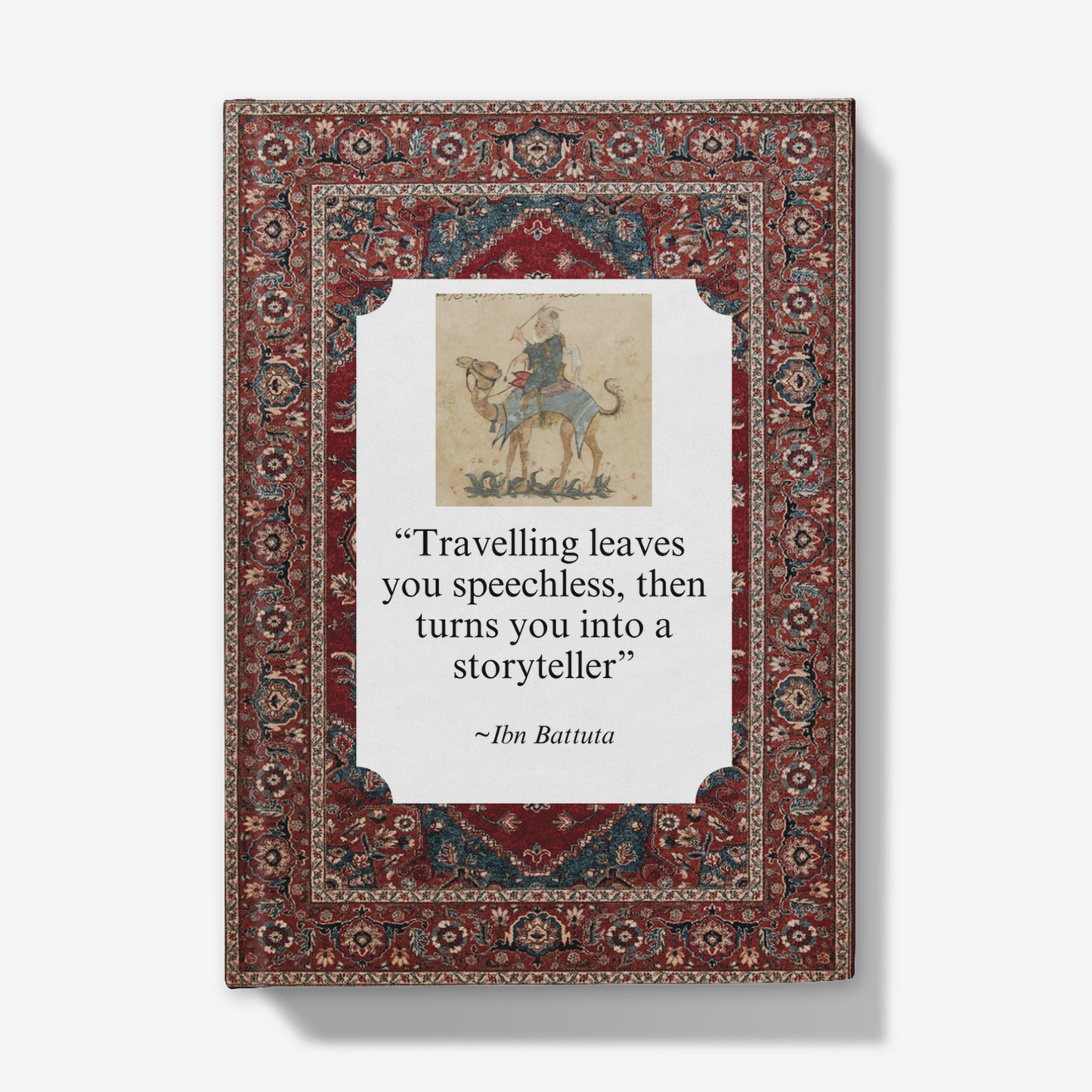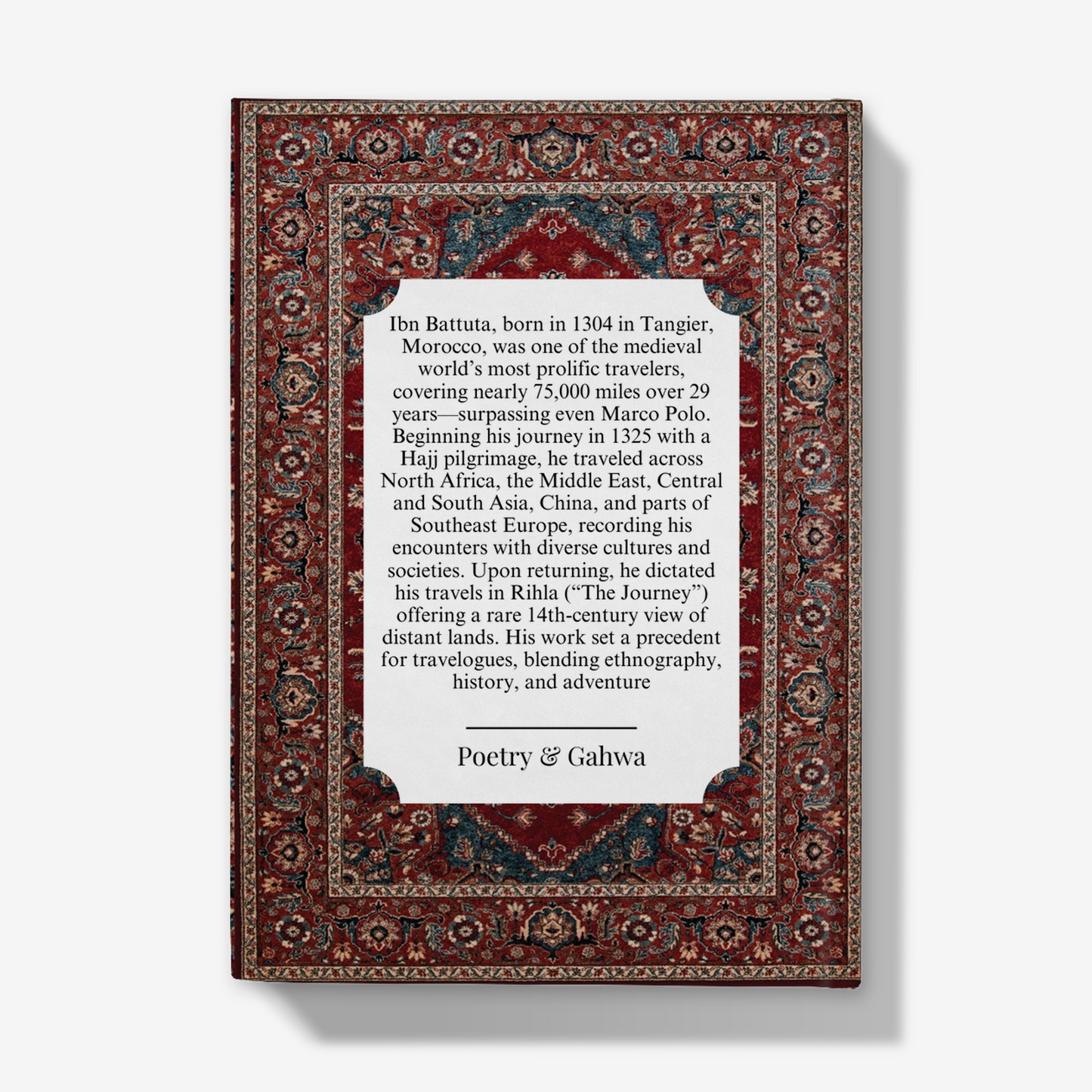Poetry & Gahwa
Ibn Batutta: 'Travelling leaves you speechless, then turns you into a storyteller' Journal
Ibn Batutta: 'Travelling leaves you speechless, then turns you into a storyteller' Journal
Couldn't load pickup availability
'Travelling leaves you speechless, then turns you into a storyteller'
~Ibn Batutta
Experience the art of writing with the Ibn Batutta Journal, a timeless companion for those who cherish the elegance of thoughtful design.
Available in a convenient 5 x 7” format, this journal offers a robust 260gsm hardback cover with a chipboard construction and refined vinyl laminate finish, providing unmatched durability and sophistication.
Inside, 128 pages of premium 90gsm paper await your every word, idea, or sketch.
Choose from ruled, graph, or blank pages to best suit your unique creative pursuits.
With full-bleed print on the front and back covers, the Ibn Sina Journal is crafted to inspire and elevate your writing experience.
Whether for journaling, note-taking, or artistic exploration, this journal transforms the simple act of writing into an art form.
ABOUT IBN BATUTTA
Ibn Battuta, born in 1304 in Tangier, Morocco, was one of the most prolific travelers of the medieval world, surpassing even Marco Polo in the sheer breadth of his explorations. Setting off in 1325 to complete the Hajj pilgrimage to Mecca, he traveled not only to the Arabian Peninsula but across North Africa, the Middle East, Central Asia, South Asia, China, and parts of Southeast Europe, covering nearly 75,000 miles over 29 years. This astonishing journey took him through the Islamic world and beyond, recording his encounters with diverse cultures, politics, and societies. Upon his return, Ibn Battuta dictated his experiences in a comprehensive travelogue called Rihla (“The Journey”), providing a rare 14th-century account of distant lands. He passed away in 1368 or 1369, leaving behind a rich legacy of exploration and storytelling.
Ibn Battuta’s legacy not only highlights his unprecedented travel distances but also his role in influencing the idea of writing travelogues as a genre. Unlike previous explorers, Ibn Battuta documented his experiences in remarkable detail, inspiring others to approach travel as a means of sharing knowledge and connecting distant worlds. His Rihla established a template for documenting journeys, blending ethnography, history, and adventure in a way that set the stage for later explorers. His work underscores the importance of curiosity, intercultural exchange, and written narrative, reminding us that travelogues can serve as a bridge between distant cultures, offering insights that foster empathy, broaden perspectives, and celebrate the diversity of human experience.



